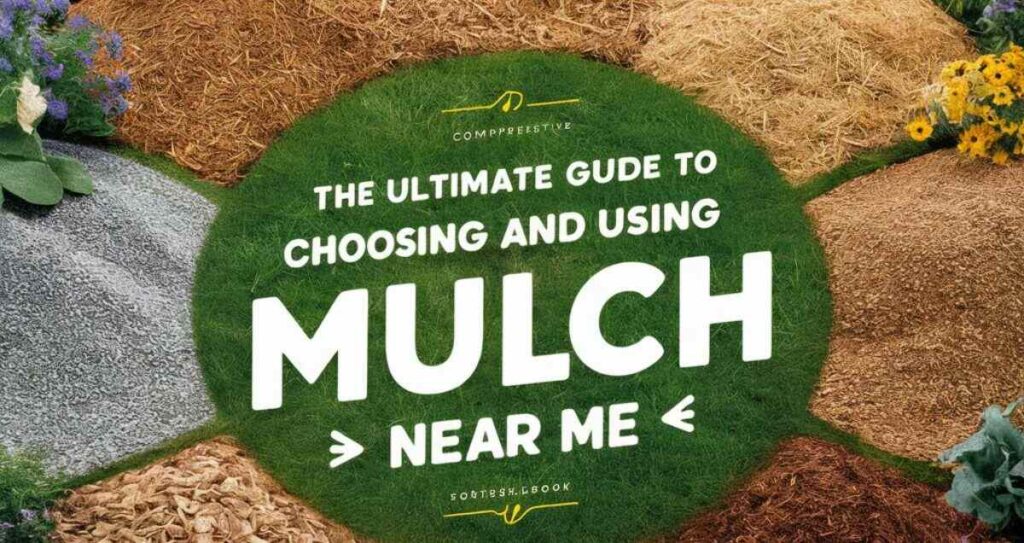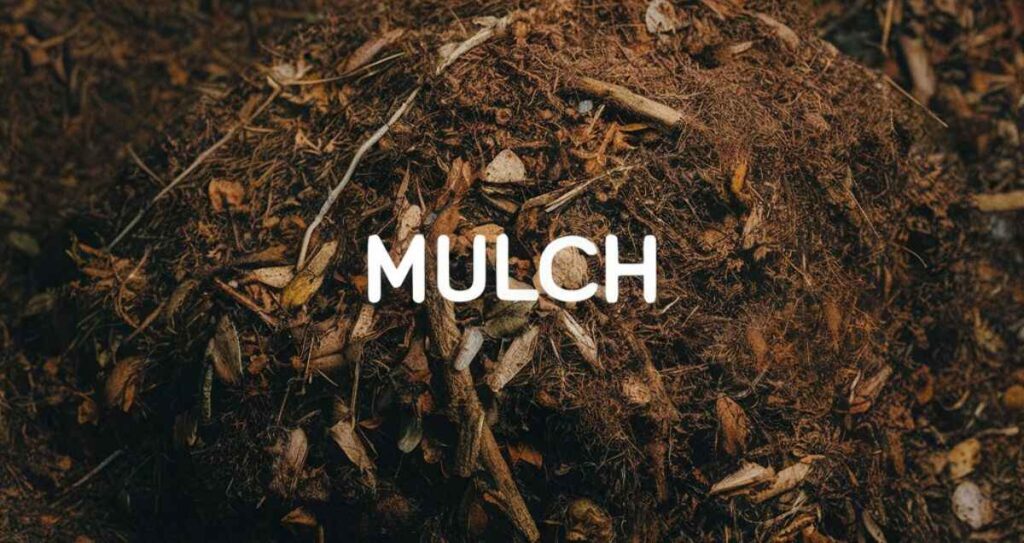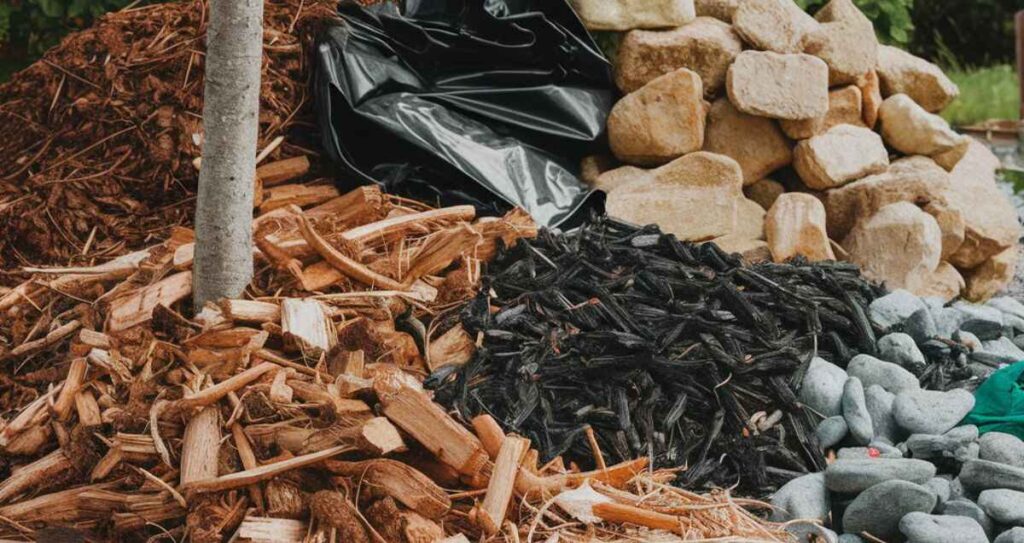Mulch is a protective layer of material applied to the soil surface around plants. It helps retain moisture, suppress weeds, regulate soil temperature, and improve aesthetics.
Imagine stepping into your garden and seeing vibrant flowers and healthy plants thriving in a lush, weed-free environment. With the right muck, this can be your reality!
muck comes in various forms, including organic options like wood chips and straw, as well as inorganic materials like gravel and rubber. Each type offers unique benefits, making it essential to choose the right one for your specific gardening needs. Not only does muck enhance your garden’s appearance, but it also plays a crucial role in maintaining soil health.
The Ultimate Guide to Choosing and Using Mulch Near Me

When you think about enhancing your garden or landscaping, muck plays a vital role. Not only does it beautify your outdoor space, but it also provides numerous benefits to your plants and soil. In this comprehensive guide, we’ll explore everything you need to know about muck, how to choose the right type for your needs, and tips for finding “mulch near me.”
What is Mulch?

Mulch is a protective layer of material placed on the soil surface around plants. It comes in various forms, including organic options like wood chips, straw, and leaves, as well as inorganic materials like gravel and plastic. The primary purposes of muck are:
- Moisture Retention: muck helps soil retain moisture, reducing the need for frequent watering.
- Weed Suppression: A thick layer of muck can block sunlight, preventing weed growth.
- Soil Temperature Regulation: It keeps soil temperatures consistent, protecting roots from extreme heat or cold.
- Erosion Control: muck reduces soil erosion caused by rain and wind.
- Aesthetic Appeal: Different types of muck can enhance the visual appeal of your garden.
Types of Mulch

Choosing the right type of mulch depends on your specific gardening needs. Here’s a breakdown of some popular options:
Organic Mulch
Organic mulches break down over time, enriching the soil. Some popular types include:
- Wood Chips: Great for flower beds and around trees. They decompose slowly and offer a rustic look.
- Straw: Perfect for vegetable gardens, straw helps retain moisture and prevents soil erosion.
- Grass Clippings: Readily available, they provide nutrients as they decompose but should be applied in thin layers to prevent matting.
- Bark: Available in various sizes, bark mulch is ideal for landscape beds and gardens.
Inorganic Mulch
Inorganic mulches last longer and require less maintenance. Examples include:
- Gravel: Suitable for pathways and around succulents. It allows for good drainage and doesn’t break down.
- Rubber Mulch: Made from recycled tires, rubber mulch is durable and effective for playgrounds and landscaping.
- Landscape Fabric: While not a traditional mulch, it can suppress weeds and allows water and nutrients to reach the soil.
| Type | Longevity | Benefits | Best Use |
|---|---|---|---|
| Organic | 1-3 years | Nutrient-rich, aesthetic appeal | Gardens, flower beds |
| Inorganic | 5-10 years | Low maintenance, long-lasting | Pathways, decorative areas |
Benefits of Using Mulch
Using brings several advantages to your garden or landscape. Here’s a closer look:
Moisture Retention
Mulch acts like a sponge, absorbing water and slowly releasing it back to the soil. This helps maintain consistent moisture levels, which is crucial for plant health, especially during dry spells.
Weed Control
A thick layer of mulch can significantly reduce weed growth. By blocking sunlight, it creates an environment where weeds struggle to thrive. This means less time spent weeding and more time enjoying your garden.Improved Soil Health
As organic mulches decompose, they enrich the soil with nutrients. This organic matter helps improve soil structure, encouraging healthy root growth and promoting beneficial microorganisms. Temperature Regulation
Insulates the soil, protecting plant roots from temperature fluctuations. In the summer, it keeps the soil cooler, while in winter, it retains heat, reducing the risk of frost damage.
Erosion Prevention
Mulch can act as a barrier against heavy rain, slowing down water runoff and preventing soil erosion. This is especially important on slopes or in areas prone to heavy rainfall.
How to Apply Mulch
Applying mulch correctly can maximize its benefits. Follow these steps for effective application:
- Prepare the Area: Clear the area of weeds, debris, and old mulch.
- Water the Soil: If the soil is dry, give it a good watering before applying mulch.
- Choose the Right Depth: Aim for a layer of 2-4 inches, depending on the type of mulch. Too much can suffocate plants; too little won’t provide adequate benefits.
- Keep Away from Stems: Avoid piling mulch against plant stems or tree trunks to prevent rot and pests.
- Replenish as Needed: Organic mulch will break down over time, so check the depth regularly and add more as needed.
Finding Mulch Near Me
When it comes to sourcing muck, local options often provide the best choices for quality and pricing. Here are some tips to help you find mulch near you:
- Garden Centers and Nurseries: Local garden centers often carry a variety of muck types, including organic options. Plus, staff can offer valuable advice on the best type for your plants.
- Home Improvement Stores: Chains like Home Depot and Lowe’s usually stock different muck types, including bags and bulk options.
- Landscaping Supply Yards: These suppliers often provide bulk muck at competitive prices. You can usually have it delivered directly to your home.
- Local Farmers or Co-ops: Some farmers sell organic muck made from their own compost or wood chips.
Case Study: The Impact of Mulch on a Local Community Garden
In a community garden in Springfield, a group of volunteers decided to implement a comprehensive mulching strategy. They used organic made from recycled yard waste, applying it around vegetable plots and flower beds.
Results:
- Increased Vegetable Yields: The garden saw a 30% increase in vegetable production during the first season after mulching.
- Reduced Watering Frequency: Volunteers reported a 50% decrease in the amount of water needed, saving time and resources.
- Enhanced Community Engagement: The visually appealing garden attracted more visitors, leading to increased participation in gardening activities.
Conclusion
Mulch is an essential tool for any gardener, providing benefits that extend beyond mere aesthetics. Whether you’re looking for your flower beds or vegetable garden, understanding the types, benefits, and application methods can help you make the best choice for your outdoor space.
Remember, the right mulch not only enhances your garden’s beauty but also contributes to healthier plants and soil. So, roll up your sleeves, find some, and enjoy the rewarding experience of nurturing your garden!
David Mark is a seasoned home improvement expert and the creative mind behind DesignersParadise. With a keen eye for design and a passion for transforming spaces, David offers practical advice and innovative solutions for creating beautiful, functional homes. His insightful articles and tips aim to inspire and guide readers in enhancing their living environments, making every home a true reflection of style and comfort.
